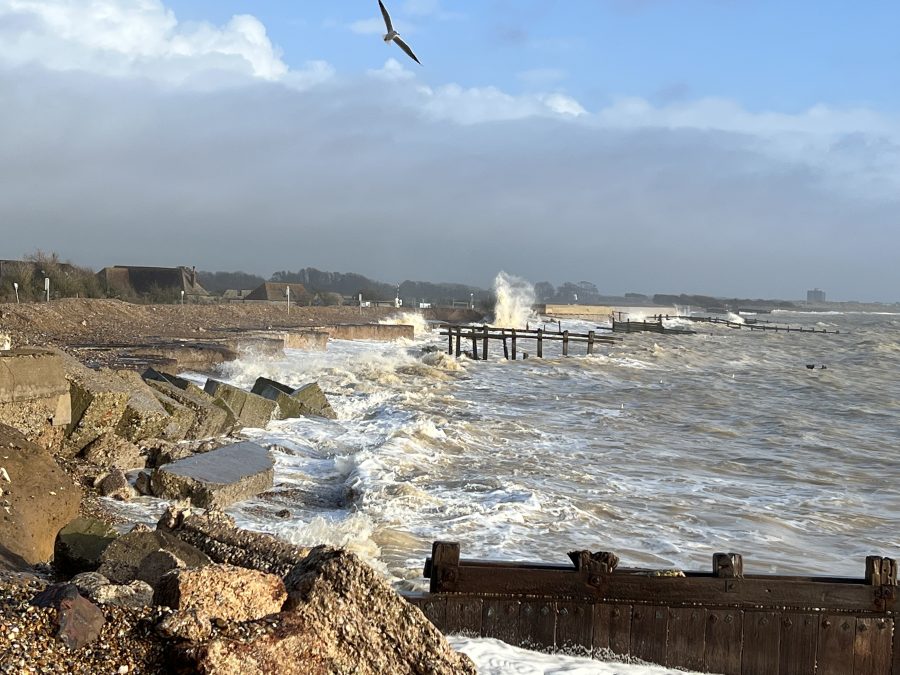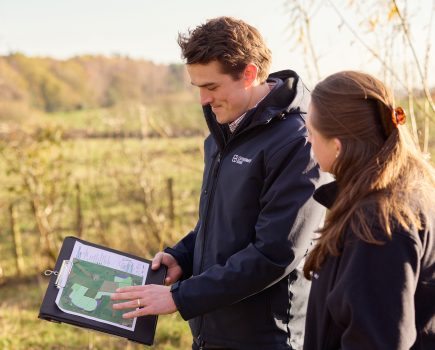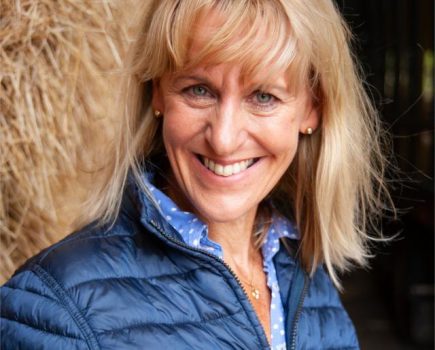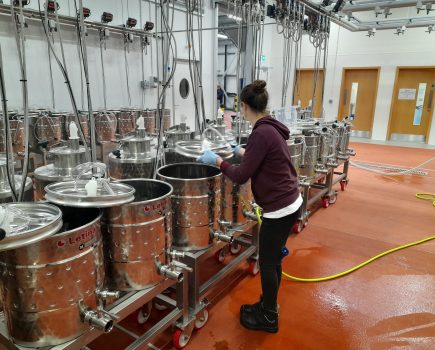A West Sussex farmer is rewilding part of his land after accepting he can no longer hold back the tide.
With farmers already wrestling with the loss of EU-support and the growing power of supermarkets, James Baird has also been doing battle with the power of the sea – but now he’s taking a more pragmatic approach.
The impact on his business of coming to terms with the fact that he can’t hold back the tide has been a significant, challenge, but he sees his decision to let nature take its course as an opportunity to put his commitment to rewilding into practice while maintaining public safety and access to the beach at Climping, near Littlehampton.
James, of Home Farm, Climping, said: “We’ve known for more than a decade that the day would come when we would lose the battle to keep areas of our land from the sea. The Coastal Defence Strategy adopted by Arun District Council and the Environment Agency (EA) in 2015, made it abundantly clear there was no justification for their spending the millions of pounds that would be required to prevent all erosion and flooding.
“We needed to prepare ourselves and the community for the future.”
Climping beach, popular with residents and visitors, has long suffered from seasonal storm patterns, and more so in recent years. In February and March of this year a series of high tides and small storm events impacted the frontage, undermined the defences and broke through to inundate the Bairds’ land. This prompted the EA to reprofile the beach shingle to maximise its flood risk benefit as part of its ‘patch/repair’ policy of maintenance while it is economically viable.
With the EA’s annual maintenance budget for the Climping frontage exceeded in recent years, the organisation took the decision to let the area find its natural position, meaning it could no longer rely on expensive hard sea defences, transitioning instead to soft materials such as shingle bays.
The storms resulted in the Bairds losing nine acres of shingle beach to the Crown Estate, and three acres of car park disappeared. A further 20 acres is now unfarmable after 250 acres was inundated by saltwater in 2020, with only 75% of its cropping capacity recovered.
The family has come to accept the loss of their land and the impact of saltwater inundation on their crops and is proposing to take positive action by rewilding the lost land to improve biodiversity. This will contribute to the national agenda to increase biodiversity at scale across the landscape.
The change is in fact a reversal that will restore long lost salt marsh, now a priority habitat along this densely developed and populated stretch of West Sussex coastline. Maps of the farm from 1606 show the extent of those lost salt marshes.
James added: “While we have no formal responsibility nor obligations for coastal protection, it’s clear that as stewards of the land we can’t sit by and do nothing. Having helped found the Weald to Waves initiative which connects Sussex’s fragmented landscape with the sea to boost biodiversity, capture carbon and enhance nature friendly food production, I can now put my advocacy into practice on our own land.”
Sparing land for nature will involve significant management input over the coming decades. Farm workers will switch from managing crops to landscape stewardship.
With the loss of productive land already gnawing away at profit margins, the aim is that the proposed natural capital offer will bring new investment. A business model centred around catering for visitors who will want to come and observe the nature is being formulated. It is a seismic shift in economy, but the Bairds are confident they are taking full advantage of what can only be viewed as the best of a bad situation.
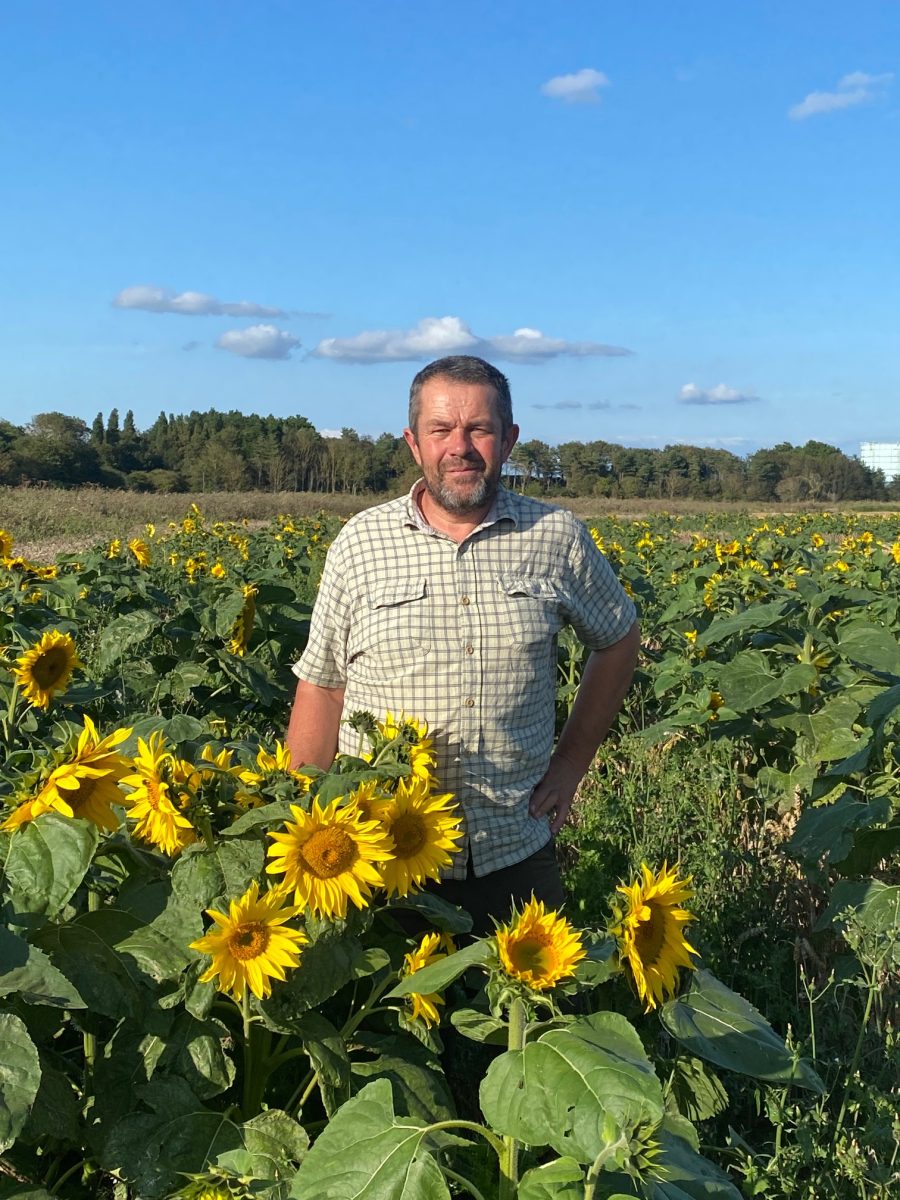
James Baird
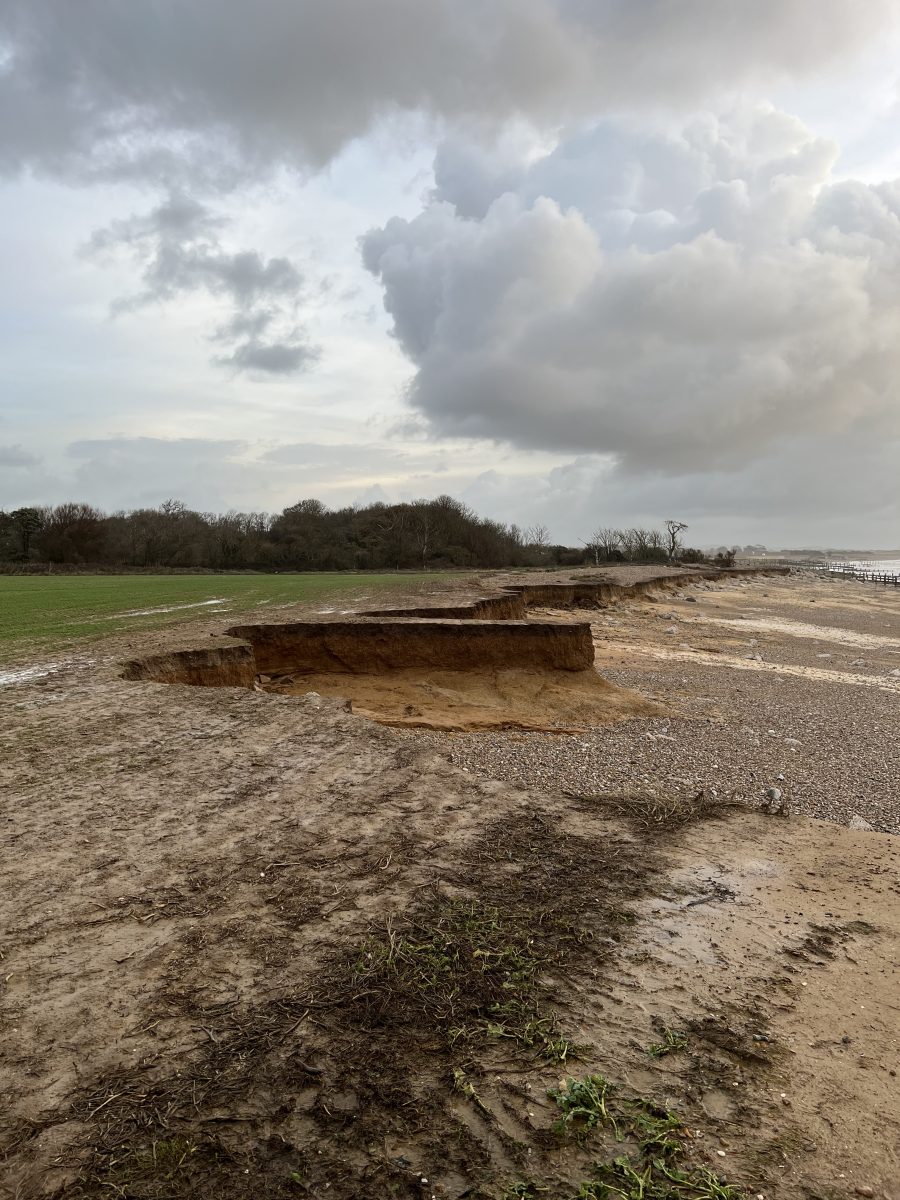
Loss of the beach

